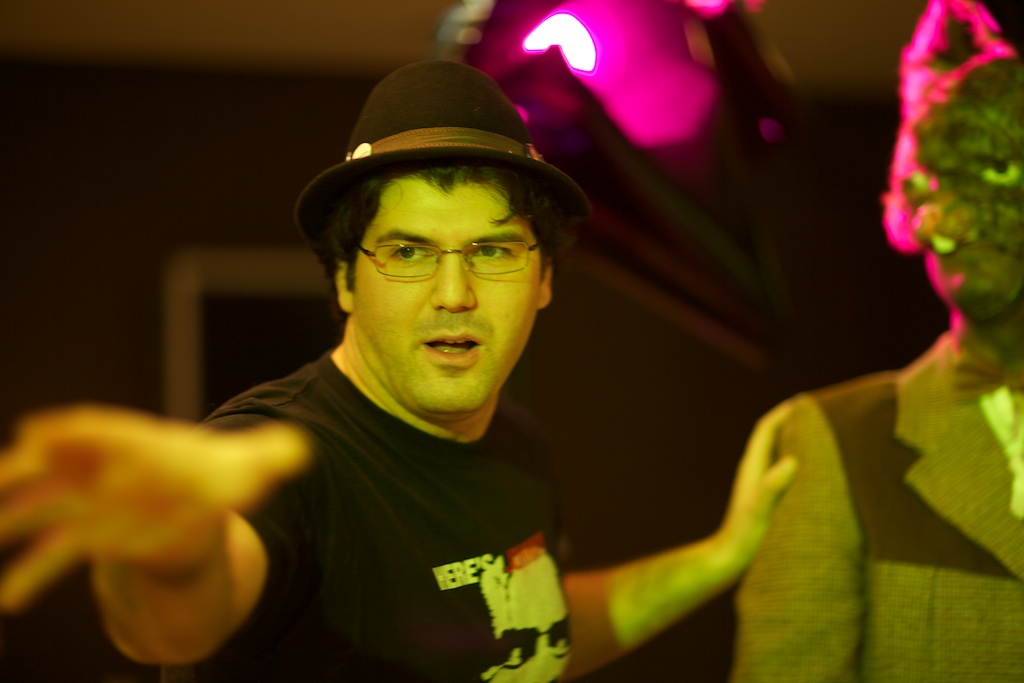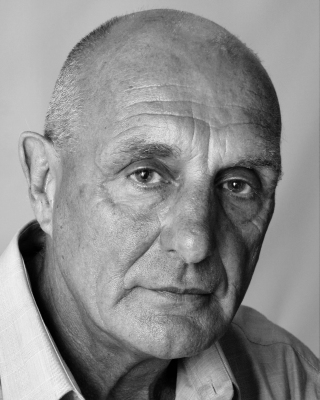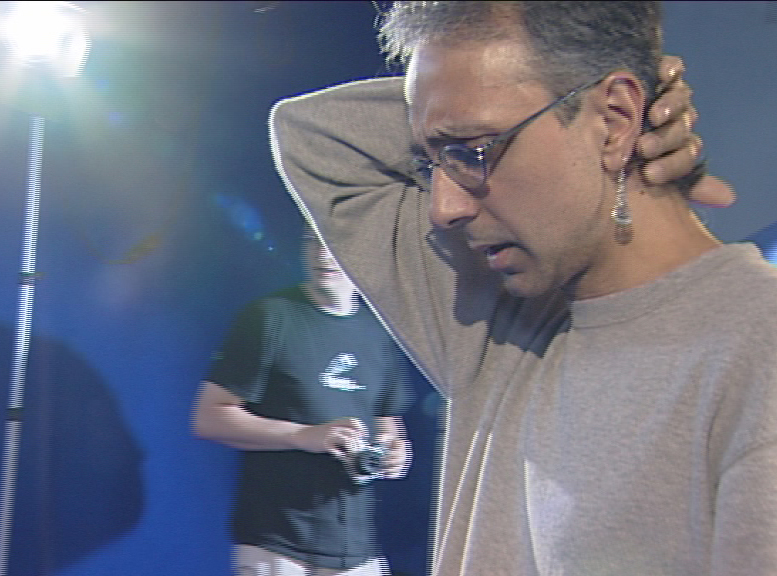ASK & DISCUSS
INDEXDo I need a permission to film in the underpass?
6 years, 6 months ago - Buppha Wittaya-Amponpunt
I might need to film in the underpass as well for my short film. Does anyone know if I do need a permission to film there?
Also, I want to hire a still photographer with expenses only since it's a low-budget film. What type of release form should I use? Is it the same as a film crew form?
I thank you for your help.
Buppha
Only members can post or respond to topics. LOGIN
Not a member of SP? JOIN or FIND OUT MORE
6 years, 6 months ago - John Lubran
Who owns the underpass? If it's in the public domain the issue will be about whether the film is fact or fiction. With factual the only issues will be the actual as opposed to merely presumed, authority of any effecting by-laws. If it's a public highway then some traffic legislation might be an issue. If the film is fiction then any clearly identifiable person or certain classes of intellectual property will need clearance.
The above is not exhaustively definitive. See my observations under your other question about obligations to others.
6 years, 6 months ago - Buppha Wittaya-Amponpunt
It's a fiction. And the underpass near my place has no buildings or house nearby. It's just a short scene in the tunnel.
6 years, 6 months ago - Buppha Wittaya-Amponpunt
So I don't know if I should consult the council where I live first?
6 years, 6 months ago - John Lubran
If you can take the shot without challenge and without identifiable passerbys and it's a public place; if it were me I own it.
6 years, 6 months ago - Marlom Tander
Unless you are going to create an obstruction you don't need permission to film, BUT if you have ambitions for the film, it's best to have a paper trail showing that you do.
Your local council probably owns it. They will almost certainly say yes, "but show us your insurance". Which of course you have. All good.
6 years, 6 months ago - Andrew Ionides
I would definitely make the council aware of your presence. And Marlom’s right you would need to present public liability insurance to them. Depending on the nature of your film and size of your crew, amount of equipment, stunts, FX etc. it’s a good idea to let other authorities know like the police and fire brigade (I did this on my last short as it involved smoke pellets in a public place). Even if cast, crew or equipment isn’t extensive it’s good to have peace of mind that you’ve covered yourself.
6 years, 6 months ago - Ketan Majmudar
Most local boroughs (I know london does) have a film unit/department and require a license to film on property owned but the council. This permit is based on cast & crew size. A quick search on the councils site or a call will clarify. It’s possible to shoot for free if your total crew size is under 5ppl - give them a call. Best of luck with your shoot.
6 years, 6 months ago - John Lubran
Whilst caution is often the better part of valour and sometimes a little hassle can prevent a greater hassle. We still seem to labour under erroneous presumptions. Local corporations, for that's what they are in actual law, even though more commonly referred to these days as councils or local authorities, don't actually own the public domain. The nature of their legal authority is through statutory derivation through so called bylaws.
When local corporations pretend to issue filming licences, such a description is wrong. They can't allow or disallow people from filming in the public domain, whatever the purpose of that filming may be. What they control though is obstruction of public roads and pavements. It's why some authorities only restrict the use of tripods, but even this is legal nonsense. Their tripod nonsense only has the force of law if that tripod causes an obstruction. A test of this was demonstrated a couple of years ago when Camden Council unsuccessfully lost a magistrates court prosecution of a film maker who refused to comply with paying a fee for a spurious licence just use an ordinary tripod. The issue hinged on whether or not the tripod caused an obstruction, the meaning of which not relying on some functionary's definition of obstruction but that of the Oxford English Dictionary. Camden could not prove that there was an obstruction. Camden decided not to appeal that judgement because they discovered that they would lose and hoped not create a precident. After that case Camden tried to save face by asserting that a tripod could be used without a licence provided that the footprint of the tripod did not exceed a square metre. Either the functionary's over in Camden still didn't get it or they hoped to assert their failed authority. Their square metre rule has no more lawful authority than did their previous rule. It's all about obstruction. In any test it's the onus is on the complainant to prove that an obstruction was caused according to the legal definition of obstruction and not that of any functionary.
6 years, 6 months ago - Glyn Carter
Actually John, local councils are owners of vast swathes of land - it's surprising what they do and don't own. As owners they exercise their right to control what happens on their land. Of course they're less interested if there's no money at stake, and filming without permission is not a crime, although they might choose to make an example in civil courts. A quick guerrilla shoot with small cast and crew will probably not be noticed, and if it is, the worst that will happen is a slap on the wrist.
I would ask permission, beg for any fee to be waived, and at a pinch go guerrilla and do it anyway. What I wouldn't do is neglect the risk assessment and insurance> Both are much more important than local permits. Failure here is negligence, causes injuries, and is a crime that can lead to jail sentences. It's a personal responsibility, and having a company is not a protection.
6 years, 6 months ago - Buppha Wittaya-Amponpunt
Can I get risk assessment and insurance at the same place? Or how to do or get a risk assessment?
6 years, 6 months ago - Marlom Tander
A risk assessment you do yourself.
You look at what could go wrong - when outdoors key issues are cables and power, what happens if it rains, is anything a trip hazard, is any of the action risky? Fights, "selfie standing on the wall"? Are the public at risk? Is a jib being used? How will you be sure it won't hit anyone?
Having worked out the risks, detail how you will mitigate them.
"If it looks like rain, postpone"
"Cables will be taped down, and generators and connections will all be designed for outdoor all weather use"
"Jib - will be crewed and circle of reach will be marked by a rope, and everyone told to keep away"
6 years, 6 months ago - Paddy Robinson-Griffin
https://1drv.ms/b/s!AqeBM-qC1TC-grI4tYFlUDjII7Vfsg is an example of a risk assessment template - one for each location
6 years, 6 months ago - Paddy Robinson-Griffin
No worries. The purpose of the risk assessment is to identify, assess and mitigate hazards. Make someone appropriate responsible for them. For instance if you're laying cables, you make the chief electrician (or whoever on your set) responsible for instructing his crew to put them neatly against walls or under cable ramps or at the very least, taped down and visible. You make sure he complies with his responsibilities.
Everyone wants to rush rush and left to their own devices might leave cables everywhere untidily - but you will lose a lot more time and money if a cast or crew member or public trips and hurts themselves. That can stop your shoot, get you sued, etc. Or knock over a light or pull the plug on the camera, or whatever. Nobody wants to take responsibility when they're busy, but by assessing and addressing risks you're actually likely to get more done in aggregate, and still have valid insurance in the event of a problem (insurers may not pay if you assessed a risk [or should have assessed one] and did not address it).
6 years, 6 months ago - John Lubran
I've just come back to this conversation and Glyn's claim about councils owning property. Whatever property councils may own according to any deed of title, is owned in public trust whether or not a deed of trust has actually been sealed by the High Court. Nevertheless councils are, arguably, empowered under both statute and law, to regulate public access, but not on any arbitrary bases, but where superior law has effect, such as protection of minors and the statutorily vulnerable; schools, health and welfare facilities and under health and safety requirements etc. However even health and safety policies are not legally definitive but similarly to obstruction issues have effect under Common Law provisions for 'Duress of Circumstance'. The public domain is owned by the public accept where a public domain has been created by a temporary default, commonly where a private domain has provided public access without any enforceable conditions. If such domain continues to do so without upholdable challenge, for varying numbers of years depending on the property, then that private domain becomes either public or creates a public right of way.
Where no Common Law power through Duress of Circumstance is enforceable the public domain of council property is owned and freely accessible by the public, albeit under the force of the criminal and civil laws that apply everywhere. There's been test cases and there's still more to come, once those who unquestioningly doff their caps to any percieved authority and their arbitrary layers of unlawful legislation stop believing in the emperor's proverbial new clothes.
6 years, 6 months ago - Allan (Mac) McKenna
Some years ago I acted in two shorts made using the underground. The first was for an affluent fairly well known amateur director with a large house in Ascot. Whether relevant or not, permission was quickly granted and staff ordered to co-operate. Incidentally it a good film of its kind. The second was with a group of film students from a London Uni. They were angry when permission appeared to be denied fairly arbitrarily. They decided to go 'guerrilla'. And great fun it was too. There appeared no problem and staff were largely unconcerned or unaware of what we were doing. As a former youth worker in London I quickly learned that if you want anything done quickly you do it first and ask permission afterwards. This worked nearly every time.
6 years, 5 months ago - John Lubran
Just had reason to challenge a local authority and to touch on this issue again.
Ironically, spurious and unlawful interference through false assertions of obstruction and authority, of a camera operator working in the public domain, amounts to actual obstruction of that camera operator, which may where such an action involves force, become a criminal obstruction. In any event a local authority may be liable to Common Law Tort and the victim eligible to remedy quantifiable in compensation that includes money.
No one is above the law and that includes legislators, their functionaries and familiers.
The increasing learned reasertion of common law supremacy over statutory presumption is increasingly empowering the common person and the more learned functionaries of the state now know it. The 'trickle down' effect of these victories on peoples every day lives will be profound.
6 years, 4 months ago - kuljit chuhan
I think John's comments and analysis here are hugely important not just for film makers. It's an area where we film makers could be encouraged to assert our rights more strongly and this would benefit all film makers as well as the public anti-corporate good. Maybe someone (John?) could create a simple online pack of how to push the rules/assert your rights in favour of common rights of public space activity (specifically film), and still stay covered to get to safely with the job in hand? The more of us that do this the better...
6 years, 4 months ago - John Lubran
The law in regard to filming from a public place is actually very simple and clear, even if there is no accounting for idiots. Numerous organisations including Journalists associations and even the ACPO (Association of Chief Police Officers) have iterated and reiterated the basic facts. One can download and copy their official declarations for carrying with oneself on location. What I've written herewith above and elsewhere really does say it all.
There are some contexts that get asserted by officials and functionaries as having exceptions, such as what constitutes an unlawful invasion of privacy or powers under anti terrorism legislation. With regard to privacy there's a clear right to it where one has made reasonable provision to protect it, such as whilst in a private place that can only be defeated by criminal trespass or the use of certain types, but not all types, of surveillance technology. For example some presumed authorities suggest that if you were to film someone in their home through an uncurtained window from a public place, then that would be an offence. It isn't. Libel, slander and malicious misrepresentation is altogether another matter. Anything that can be seen by anyone from a public place, even if the subject is in a private place, has been proven to be within the public domain; even if one is using a telephoto lens. It's the defeating of a subjects reasonable effort to protect their privacy that may cross the line between lawful and unlawful and which can only ultimately be decided, case by case, in a Court of Law, as opposed to certain other types of hearings and quasi courts. Apart from spurious obstruction claims some police have also been asserting anti terrorism and public order powers as an excuse to interfere with photographers and film makers. They can certainly detain, obstruct and arrest people on those grounds, but they must prove, beyond all reasonable doubt, in that Court of Law, that they had good reason to use those powers. There has been a number of cases where courts have not upheld the police's explanation and have then been sued for wrongful arrest and consequential damages. Despite these defeats some police, though certainly not all, have continued to use these improper devices which suggests a certain brute ignorance has yet to be trained out of those perpetrators.
As heroic as it may be to assert ones rights in the face of over reaching authority, especially if that's ones actual purpose, film makers and photographers ought to reason with themselves, before venturing out into troubled waters, whether or not they really want the hassle. Grace and common sense, as well as Common Law, is often better. Nevertheless, the more often that over reaching authority is put back in its box the better it is for everyone. It's a constitutional thing.
6 years, 4 months ago - kuljit chuhan
Thanks John, it's an interesting area that pervades many film makers' lives. Re filming someone through an uncurtained window - while that may be lawful to do if done from a public place, one wouldn't actually be able to use it in a film for any kind of dissemination without that person's consent surely? Unless it could be shown to be in the public interest?
6 years, 4 months ago - John Lubran
A reasonable presumption Kuljit but the truth is that an evident truth is rarely, if ever, unlawful, even where lower authorities might have deemed them so. It's the process of obtaining truth can cross the line.
The only time a person's permission is needed is if the context within which the subjects image is used misrepresents that person, is maliciously detrimental or used within a dramatically constructed and/or fictional production. The issue of commercial exploitation can become a grey area but in principle such use within an advertisement for a commercial product or service would constitute crossing the line. Use within a factual programme or documentary where the narrative or incidental context is not unreasonable is technically legal and lawful. The distinction between the words 'reasonable' and 'unreasonable' is important in law. One has a prima fascia lawful right not to have to prove ones reasonableness as opposed to the onus being on an accuser to prove unreasonableness. It's a supremacy of Common Law thing where one is innocent until proven guilty. Despite misunderstanding of process by some, for example in slander and knife possession cases, there are no exceptions to this fundamental constitutional provision. However the definition of "unreasonable" might result in it having to be tested in court if such fall within that grey area. Common sense and the degree of need is often a good starting point when assessing risk.
Nevertheless, no matter how personally clear one may be with regard to permissions or the lack of need for them, the issue might well be trumped by the risk averse requirements of any platform ones film aspires to be displayed on. "Caution is often the better part of valour"








